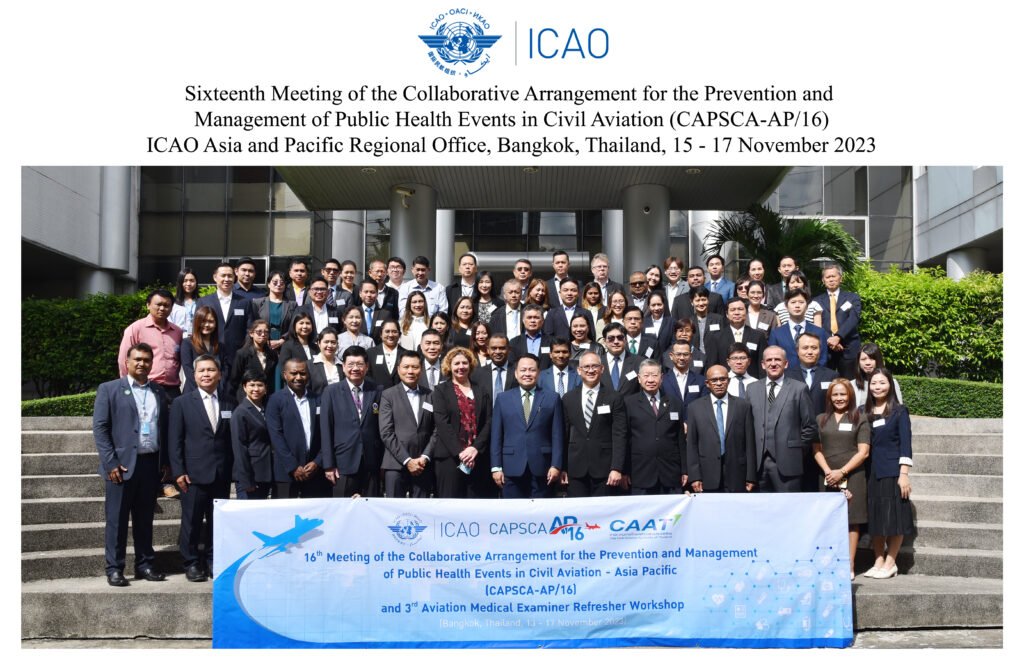The Aviation Medicine Section at ICAO oversees and maintains the medical provisions that are outlined in Annex 1 to the Convention on International Civil Aviation to ensure they are current and effective. Additionally, the section manages the the Collaborative Arrangement for the Prevention and Management of public health events in Civil Aviation (CAPSCA) programme, which focuses on the prevention and management of public health events in civil aviation. It provides essential guidance to medical examiners and assessors to interpret and implement medical requirements.
The section is responsible for editing significant documents like the Manual of Civil Aviation Medicine (Doc 8984) and contributes to the development of SARPs and guidance material for preparedness planning in aviation during public health crises, communicable diseases, and other emergencies. It also offers crucial guidance to licensing authorities in Contracting States and actively participates in knowledge-sharing activities, including regional seminars, educational sessions, and presentations at international aviation medicine scientific meetings, all of which are essential for safeguarding public health in civil aviation.
APAC States recently provided updates on public health events and related matters during the 16th CAPSCA Meeting that was conducted on 15 – 17 November 2023 at the ICAO APAC Regional Office. The meeting was attended by 96 participants from 13 States/Administrations and seven participants from Airports Council International (ACI), ICAO and the World Health Organization (WHO). ICAO and WHO provided updates on latest developments and updates on the public health events related matters followed by informative presentations from the participating States. The CAPSCA-AP/16 meeting agreed on 12 Conclusions for implementation by the APAC States/Administrations.

Article 14 of the Convention on International Civil Aviation concluded in 1944 obliges Contracting States “to take effective measures to prevent the spread by means of air navigation of cholera, typhus (epidemic), smallpox, yellow fever, plague, and such other communicable diseases as the Contracting States shall from time to time decide to designate“. CAPSCA was established in 2006 as a voluntary cross-sectoral, multi-organizational collaboration programme managed by ICAO and supported by the WHO and other United Nations (UN) organizations to support ICAO’s work in preparedness plans and adequate infrastructure in place to mitigate the impact of public health events in air transport, the Collaborative Arrangement for the Prevention and Management of Public Health Events in Civil Aviation.
On the third day, a half-day field visit to the Bangkok Suvarnabhumi International Airport was conducted to observe the international communicable disease control process at the Port Health Office and Airport Medical Service areas.


